The Heart of Linux
Ken Starks throws down the gauntlet and puts a hundred bucks on the line in an attempt to see if civility can be brought to the forums and a particular change made to LibreOffice.
It was last Wednesday that I dropped into one of the forums where I lurk on occasion and even on fewer occasions might post. One of our newer Reglue kids had emailed me with a question about something I’ve been teaching our kids for a while now, but even though I had explained this to her just a month ago, I had to ‘splain it to her again.
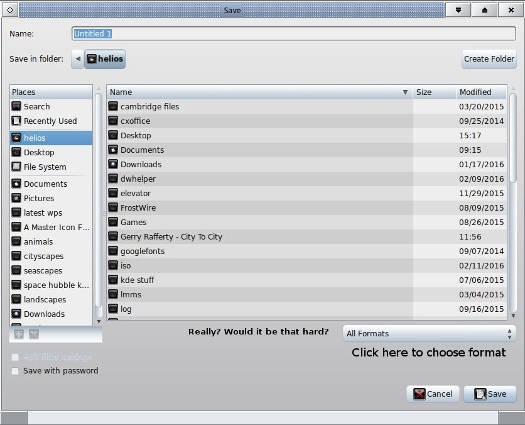
I had to remind her how to change the format in Writer before she sent her document off to a Windows user.
Go ahead and roll your eyes, you who are all-knowing. It’s an easy thing for us, but I want those of you who care to see things through the eyes of a new Linux user.
Ken Starks is the founder of the Helios Project and Reglue, which for 20 years provided refurbished older computers running Linux to disadvantaged school kids, as well as providing digital help for senior citizens, in the Austin, Texas area. He was a columnist for FOSS Force from 2013-2016, and remains part of our family. Follow him on Twitter: @Reglue

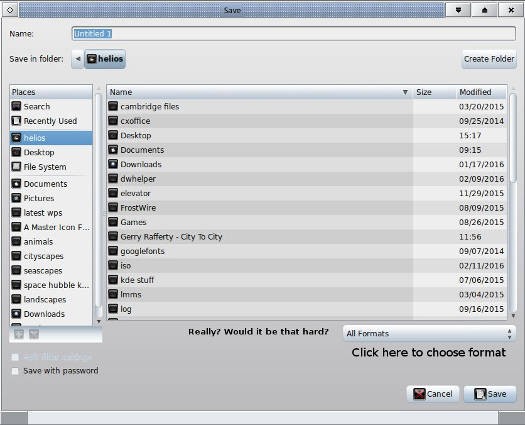
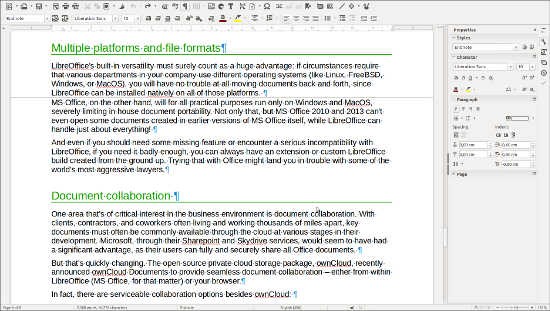
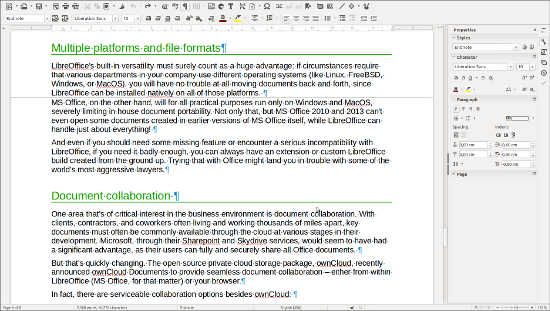
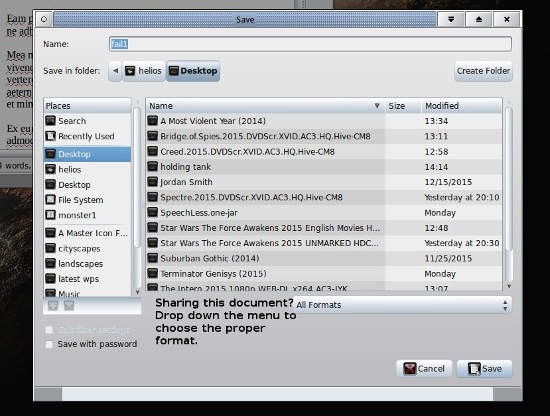
 The problem is just One Little Thing…something so infinitesimal that it would be easy to gloss over and wave one’s hand in dismissal.
The problem is just One Little Thing…something so infinitesimal that it would be easy to gloss over and wave one’s hand in dismissal.
 Dell Fixing UEFI for Linux? Linux users may be able to update their UEFI firmware on devices, if Dell has their way. The computer manufacturing giant is looking at making things easier for Linux users, and Richard Hughes writes on his
Dell Fixing UEFI for Linux? Linux users may be able to update their UEFI firmware on devices, if Dell has their way. The computer manufacturing giant is looking at making things easier for Linux users, and Richard Hughes writes on his  The Thanksgiving holiday really put a damper on FOSS developments this week — but that doesn’t mean there’s nothing to report. On the contrary. So without further adieu, and on the heels of Thanksgiving, help yourself to another slice of…
The Thanksgiving holiday really put a damper on FOSS developments this week — but that doesn’t mean there’s nothing to report. On the contrary. So without further adieu, and on the heels of Thanksgiving, help yourself to another slice of…
 LibreOffice has won, get over it: Last week, I innocently posted
LibreOffice has won, get over it: Last week, I innocently posted 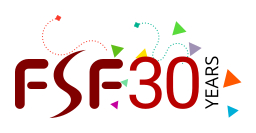
 Speaking of things as certain as gravity…
Speaking of things as certain as gravity…

 I have been using LibreOffice since it was called Star Office and all documents opened in a tabbed interface, as in most modern spreadsheet applications (anyone remember those days?). From those early days until now, I have considered Star Office/OpenOffice.org/LibreOffice to be an excellent, if not superior, tool compared to many on the market.
I have been using LibreOffice since it was called Star Office and all documents opened in a tabbed interface, as in most modern spreadsheet applications (anyone remember those days?). From those early days until now, I have considered Star Office/OpenOffice.org/LibreOffice to be an excellent, if not superior, tool compared to many on the market.